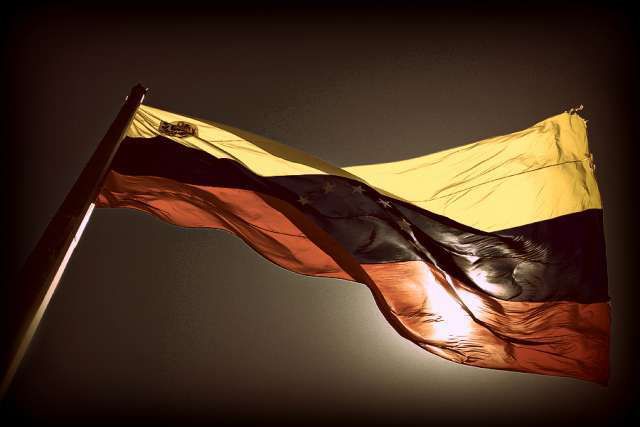Aboard his overnight flight from Colombia to Rome Sunday, Pope Francis touched on the dire political and human rights crisis that continues to unfold in Venezuela, stating that the U.N. needs to be involved in reaching a solution.
“It seems that it's a very hard thing, and the most painful is the humanitarian problem, the many people who escape or suffer...we must help to resolve it in any way (possible). I think the U.N. must also make itself felt there to help,” the Pope said Sept. 10. “I think that the Holy See has spoken strongly and clearly,” he said, also mentioning the many times he has spoken about the situation in Venezuela during his Angelus addresses.
Journalists also asked Pope Francis about President Nicolás Maduro’s conflicting rhetoric, in particular his claim to be “with” Pope Francis, while at the same time speaking out violently against the bishops. About this, Francis replied: “What President Maduro says, he can explain. I don't know what he has in his mind…”
The Pope also mentioned the extensive work of the Holy See to promote dialogue in the country, including the agreement to send a group of four ex-presidents as facilitators in a meeting between the Venezuelan government and the opposition Oct. 30, 2016. The group was made up of former Colombian president Ernesto Samper Pizano, the secretary general of UNASUR (the Union of South American Nations); José Luis Rodríguez Zapatero of Spain; Martín Torrijos of Panama; and Leonel Fernández of the Dominican Republic. The Vatican also sent Archbishop Claudio Maria Celli to participate as a nuncio of the Holy See.
Pope Francis said that after “speaking with the people,” the Holy See has also spoken to Venezuela in a private manner, possibly referring to a private meeting that occurred between him and President Maduro at the Vatican last October.
The Pope spoke aboard the papal plane Sunday evening on the return flight from Colombia. He visited the country Sept. 6-11 to promote peace and reconciliation in the country, which has suffered from the violence of a decades-long civil war. In the 40-minute long conference, the Pope also spoke about Deferred Action for Childhood Arrivals (DACA), corruption, climate change, and whether Colombia could provide a model of the peace process for other countries.
Venezuela is in the midst of escalating protests and violence, as President Nicolás Maduro has suppressed opposition and democracy activists, and moved to seize legislative power in the country. The results of a July 30 election convened by Maduro have been dismissed as illegitimate by the United States and several other nations, and a burgeoning economic crisis has led to widespread chaos.
The country was on Pope Francis' mind throughout his visit to Colombia, beginning with the flight over the nation. As his plane took off for Bogota, he greeted journalists, telling them they were going to fly over Venezuela and asking them “to pray so there can be dialogue, that there will be stability, with dialogue with everyone.”
In his Angelus address on Sunday, the Pope again assured those present of his prayers for the countries of Latin America, particularly Venezuela, expressing his closeness to the nation and those from the nation who have been welcomed into Colombia. “From this city, known as the seat of human rights, I appeal for the rejection of all violence in political life and for a solution to the current grave crisis, which affects everyone, particularly the poorest and most disadvantaged of society,” he said.
He also met briefly with five bishops from Venezuela present in Colombia for his visit, welcoming them to the sacristy after celebrating Mass in Bogota Sept. 7. Among the prelates Francis met were Cardenal Jorge Urosa, Archbishop of Caracas; Cardenal Baltazar Porras, Archbishop of Mérida; Jes√∫s González de Zárate, Auxiliary Bishop of Caracas; Bishop Mario Moronta of San Cristóbal; and Bishop José Luis Azuaje of Barinas, who is also President of the Latin American branch of Cáritas.

